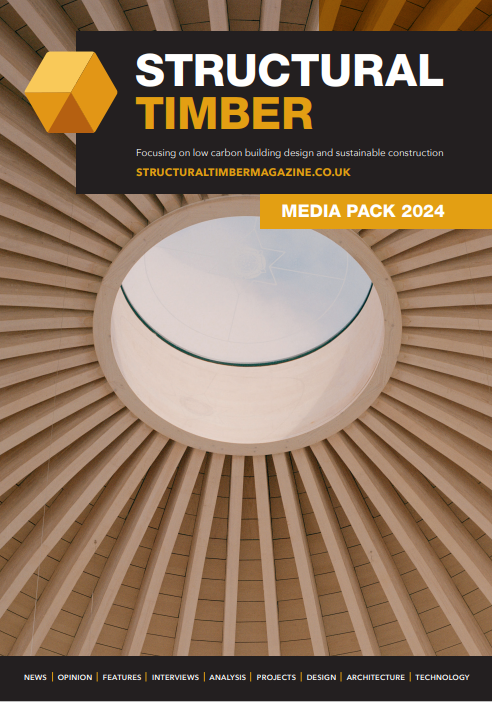Fit for the Future
In a few short years, modular offsite timber manufacturer Carbon Dynamic
have garnered a reputation for cutting edge design and delivery.
Managing Director Matt Stevenson, took part in a quick Q&A about how
new technology is changing the shape of construction.
Q: Can
you say a little about the creation of Carbon Dynamic and background to
choosing an offsite modular approach using timber?
Matt Stevenson (MS):
Carbon Dynamic was established
eight years ago in a highland farm steading. We are now based in a
4500m2 factory in Invergordon and we design and manufacture
high-quality, beautiful timber modular buildings for the leisure and
affordable housing markets having grown to a £4 million turnover and 45
permanent staff. We’re dedicated to delivering social, environmental and
economic impact and do this by providing cost effective, low energy
buildings using locally-sourced healthy and sustainable materials, and
believe offsite manufacturing is the best way to control the quality of
both process and product.
Q: What level of construction efficiencies are improved
through the modular approach as compared with traditional build – either
thermal, durability or manufacturing quality benefits?
MS: Construction time is easier to predict and safer due to
lack of weather influence. Time on site is minimised resulting in less
disruption to neighbours. Material waste is reduced as this is
controlled from a central location, quality of workmanship is easier to
control and oversee – all resulting in better airtightness and thermal
efficiency. It’s a safer working environment for staff than rural
building sites.
Q: What are Fit Homes? What is the concept designed to
achieve and where does it sit in the wider creation of flexible living
and the development of ‘smart’ homes?
MS: The ‘Fit
Homes’ concept is a technology-enabled smart house that promotes
wellbeing and preventative health solutions up to and including end of
life care. Residents benefit from digital health and assisted living
technologies in a way that has not been possible before. The concept
supports residents to take charge of their own wellbeing. At the same
time they can meet their health needs through a system of innovative
technology and design. They will be able to both self-manage their
support and have enhanced face-to-face social interaction. Fit Homes is a
home for life, not just an end-of-life solution. The technology enables
young people to maintain a sense of wellbeing and morphs as the person
responds to the physical and mental changes that life brings.
Q: The use of VR/AR technology is exciting and grasping many
architect’s and manufacturers imaginations – how important is this to
the future development of construction and the wider role of digital
technology in the timber sector?
MS: We have been
developing our virtual reality (VR) tools to create photorealistic
experiences. This allows for our designers and clients to visualise a
project before a single piece of wood has been cut. This is an
invaluable step in our design process as it can inform so much of the
design, we have successfully run a co-design workshop with over a 100
participants on our Fit Homes project which had a great impact on the
design process. In partnership with Sublime we have been looking at
developing augmented reality (AR) as a tool for manufacture. The
Augmented Worker system will be designed to drive greater certainty,
safety, efficiency
and sustainability through five key areas –
co-design, digital job guidance, progress monitoring, safety guidance
and asset management. This will allow jobs to be delivered on-time, and
within budget, whilst also giving a greater level of collaboration and
communication between teams.
To view the rest of this article in Offsite Magazine please visit: Offsite Magazine













